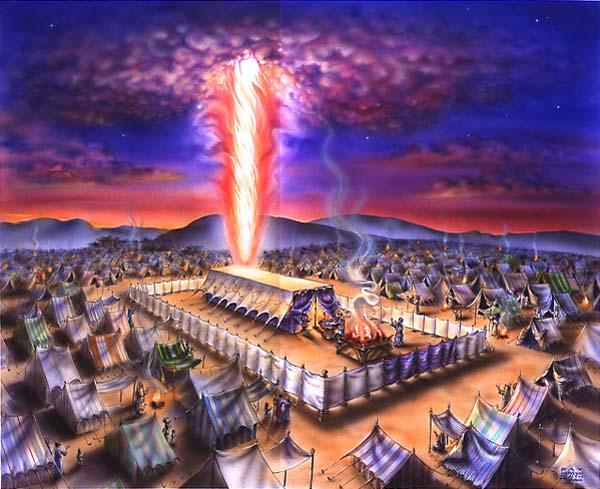A Deeper Appreciation for Grace
As we left the sounds and smells of Port-Au-Prince, we drove off into a dusty, drab landscape. I think I saw less than five wildflowers on our trip to the compound — not five plants filled with flowers–but five actual flowers. I counted. There was some green brush and weeds covering some areas and a few low-growing trees but that was about it.
When we arrived at the compound, it was to find out that we had no hot water, no soft place to sit, and the water tasted…thick. It had this weird texture from the chemicals needed to sterilize it. Our meals consisted of cereal with warm powdered milk for breakfast and rice and beans for lunch.
Be sure you understand that I am not complaining. It was an extremely nice place to stay in this needy, third world country and we were very well taken care of. And I am also well aware that there are some areas in Haiti that are quite lovely.
But through that week, I realized just how much I love my hot showers, sitting on my comfortable sofa after a long day, and the wonderful abundance of options I have when choosing what I want to eat or drink. I realized the precious blessing of going to the sink and being able to turn on a tap for clean, drinkable cold water and {almost} instant hot water. Do you really realize how amazing this is?? So many do not have this luxury.
I also realized that week just how much my soul is fed by the colorful landscape of my home state. Trees of all shades of greens abound and flowers in every color of the rainbow can be spotted simply on a trip across town in the summer. A trip to my local grocery store, nursery, or florist makes flowers and plants available all year round. Within a few hours in any direction, we can go to various lakes, rivers, streams, mountains, and even the beach for a weekend away. In fact, we even have the money to afford an occasional weekend vacationing in one of these spots. How blessed can I be??
The funny thing is that I am not sure I truly understood how blessed I was until I left my personal comfort zone and thought outside of myself. While a trip to another culture can help you see this very clearly, you don’t necessarily have to leave the country to discover this — a trip to your nearest inner-city, a good missionary biography, or a conversation with an older person who went through the depression or the war can also help you understand just a bit.
But it’s really hard to fully appreciate our blessings until we realize what life looks like without those blessings.
My experience in Haiti seems akin to how reading the Old Testament works in our lives as a believer. I know many people are quite satisfied to just ignore the Old Testament. They are quite comfortable in the New Testament and believe that all they need to know for the Christian life is held there. And I can honestly admit that I used to be a bit like that myself. After all, the Old Testament is filled with so much we don’t really understand and what we learn about God in those books can make us squirm. But as I was reading in Leviticus this past week, I realized that perhaps–
We can’t truly appreciate grace until we truly understand what life without grace looks like.
Of course, God has always provided a certain amount of grace to His people and provided a way to be reconciled to Him, but all of the sacrifices, and laws, and the specifics of the Tabernacle are so much to take in. This style of life is so foreign to us now. Interestingly enough, I recently watched a Frontline film (DVDs that show how the gospel is spreading in hard-to-reach places) that featured an animal sacrifice in Bangladesh. I found that especially interesting in light of what I have been reading. Some people are still sacrificing animals today to appease their god.
As I read all of the seemingly unimportant and very specific rules and laws, I ponder at their inclusion in scripture and yet God included them in His inspired, inerrant Word. There must be a reason. So what could that reason be?
I don’t presume to know God’s reasons, but what I do know is that the Old Testament is teaching me so much about God–who He is and what He’s like. I’m learning of His omnipotence, His love, His desire for my humility and obedience. I am learning the meanings of holiness and justice.
But, most of all, I’m learning what life looked like before Jesus died on the cross and provided a sacrifice for our sins.
As I read the Books of the law, *hymns like Amazing Grace, Wonderful Grace of Jesus, and Marvelous Grace take on a whole new meaning. I hope that, as you read through the Bible this year, you will notice that God doesn’t change, but through His incredible grace, He provided a way for us to be reconciled to Himself that doesn’t require animal sacrifices and obedience to detailed laws. This is amazing! This knowledge of life before Jesus’s sacrifice and resurrection leads us to a deeper and fuller appreciation of grace.
So let’s keep reading through the hard passages. It will not be in vain.
*Hymns are a wonderful way to grow in our faith. Much doctrine and depth of thought lies within their lyrics. I hope that you will consider listening to them sometimes with your children or grandchildren. While I love all kinds of music, it pains me to see beloved hymns being removed from churches. They are more than “old-fashioned” songs. They are wonderful songs of testimony and doctrine. Few worship songs (and I have nothing against worship songs) hold a candle to a hymn’s depth of lyrics. Try turning your Pandora station to hymns occasionally or read some hymn lyrics as an addition to your devotional time.










